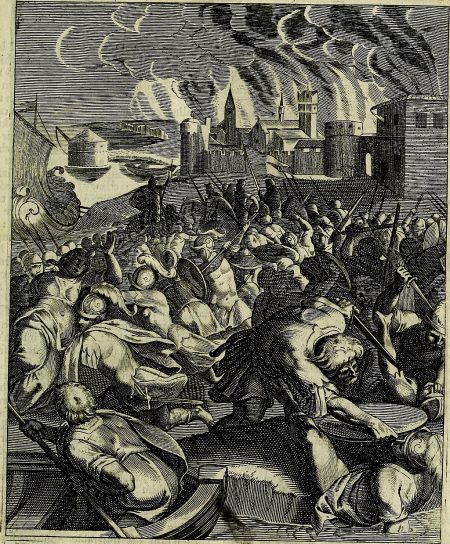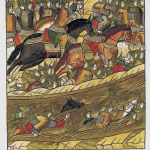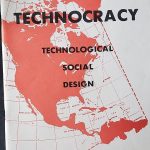
Doctrine of Human Life by Daret. Internet Archive Book
Images / No restrictions
On the absurdity of thinking that some people are expendable, that only old people die of this thing, that saving the economy is more important than saving people’s lives, that the economy can be saved at all while people are dying by the hundreds in our major cities and beyond, that people exist to serve the economy and not the other way around, that the economy is even worth saving in its present form, and that more of what got us here is what we really need.
I’ve been hearing an argument lately, mostly from the right, that coronavirus isn’t really that bad, and that even if it does kill some old people, those would be acceptable losses if it means the economy keeps rolling as usual.
I have a few problems with this argument, on moral, practical, procedural, psychological, and existential grounds.
Morally, the whole “sacrifice your granny for the good of the economy” line seems like an utterly heartless thing to suggest, regardless of how active or inactive your granny might be. Back in Catechism class we were taught the Ten Commandments, one of which is “Honor thy father and thy mother.” Being rated not worth saving hardly seems like a just reward for managing to survive 70+ years on Planet Earth. Moreover, it puts our commitment to the first commandment into question.
But even if we do decide to throw granny under the bus, there’s still the fact that lots of younger people manage to get sick from coronavirus, and sometimes, they too need medical help. Today, even with major stay-at-home restrictions in place, hospitals are struggling to care for the patients that are coming in. To underline that, even with lots of effort going into containing the virus, the virus is still overwhelming our hospitals.
But just for the sake of argument, let’s say we open the gates, send everyone back to school and work, and let the chips fall where they may. Let’s also assume that the experts are right and cases spike as soon as we ease restrictions. By this logic, a lot more people would get coronavirus, and some of them, let’s say a noticeable number of them, die. How does it affect the economy when large numbers of people are calling in sick, and some proportion of them never return? Is a major die-off of human beings bullish?
Procedurally, what do you do about medical equipment, facilities and staff during all this courageous saving of the economy? If we’ve decided to risk a larger outbreak for the good of the economy, is it any longer necessary to try to save everyone? And then there are all the elderly people in nursing homes and other institutions. Should precautions be taken to protect their safety, or should we just let the virus rip and plan on having a lot of capacity in the rest home market in coming months?
Finally, there’s the psychological impact of all this fear, sickness, and death that will inevitably accompany a premature return to business as usual. No matter how practical we’re being about the economy, there are going to be some people who are going to feel it more than others. Some may feel guilty about it, or angry, or depressed, while others (say, middle aged people who still work) may simply live in fear of getting the virus themselves. People will be compelled to do what they have to do to survive, but a lot of them aren’t going to feel good about it. Imagine that the government ordered everyone of all ages under retirement to go back to work now. How would that feel?
In the not-too-distant future, we’ll look back on this, and some will say, “Oh well, it was bound to happen. There was nothing we could have done.” Which isn’t at all true. Our hyper capitalist, globalist, neoliberal economy is built on endless “growth,” not on building a decent and equitable society. In our economic system, it’s up to the individual to help himself. Women and children can line up in the back.
Not even during the Great Depression have we seen so many industries shut down, so many businesses doing little or no business. The New Deal allowed people to survive the Depression. The money stoppage of the 2009 financial crisis was alleviated by loosening credit and bailing out the banks. But with coronavirus, we can’t just turn the economy back on through mechanical means. We have to decide (or our leaders do) whether the risk of killing additional people is worth the prize of a restarted the economy. Die for the Dow! could be our motto, but that brings us back to morals.
Because coronavirus is a natural and not a man-made disaster, it forces us to think of that amorphous force we call Nature, and how much we’ve abused it over the decades. We know our way of life is killing the planet, just as coronavirus is killing us. Some may wonder if coronavirus could in any way be connected to that abuse. And yet we’re told that the most important thing right now is to get the economy going again, the very engine of the growth that’s killing the earth and all who live here.
Coronavirus is proving to be the great disruptor that forces us to rethink our assumptions. As the old system breaks down before our eyes, we have an opportunity like no other to envision a better way. What kind of system would help humans and the planet – all classes, all species — not just in the future but right now? Getting to that system is a project worth taking on, unless of course we want the next disaster to be even worse.




